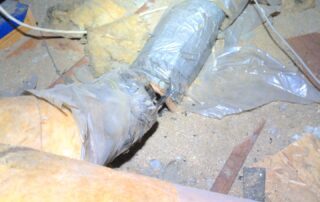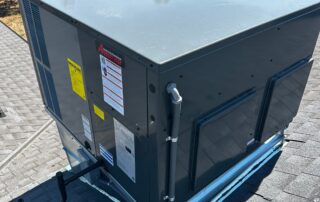Why You Should Service Your HVAC System Before Summer!
❄️ Why You Should Service Your HVAC System Before Summer
Getting your HVAC system serviced before summer isn’t just about staying cool—it’s about protecting your comfort, wallet, and investment. Scheduling a tune-up before the heat hits is one of the smartest things a homeowner can do.
🔧 Prevent Costly Breakdowns When You Need Cooling Most
Your AC works hardest in summer. If there’s a worn-out part—like a capacitor, contactor, or dirty coil—it’s more likely to fail under heavy demand. A pre-season tune-up catches issues early so you don’t end up sweating it out during a heatwave.
💰 Avoid Expensive Emergency Repairs
Emergency repairs often come with premium costs, especially when technicians are booked out during peak season. A routine maintenance visit costs far less and helps avoid surprise breakdowns when you need cool air the most.
🧼 Change Filters Regularly—It’s Critical
Your HVAC filter is your first line of defense against dust, pollen, and pollutants—and it also protects your equipment. In extreme summer heat, filters clog faster because your system runs longer.
Neglecting filter changes can lead to:
-
Reduced airflow and higher energy bills
-
Overheating or frozen coils
-
Dust buildup on internal components
-
Worsened indoor air quality (especially for those with allergies or asthma)
👉 Pro tip: Check your filter every 30 days in summer and replace at least every 30–60 days—more often if you have pets or live in a dusty area.
⚡ Lower Energy Bills All Season Long
A clean, tuned-up system cools your home faster and uses less electricity. Dirty condenser coils, low refrigerant, or loose belts all force your system to work harder, driving up your utility costs.
🛡️ Protect Your Manufacturer’s Warranty
Many HVAC manufacturers require proof of annual maintenance to keep your warranty valid. Skipping service could mean paying out-of-pocket for major repairs—even if the unit is still under warranty.
🏠 Extend the Life of Your Equipment
Just like your car needs oil changes, your HVAC system needs regular service. Routine maintenance reduces wear and tear, helping your system last years longer and saving you thousands on early replacement.
🕐 Beat the Summer Rush
Once the first heatwave hits, everyone starts calling. Schedule service now and enjoy faster appointments, more flexible times, and better pricing—before demand spikes.
💡 Financially Smart Homeownership
Preventive maintenance is a low-cost investment with big returns:
-
Avoid high repair or replacement costs
-
Improve system efficiency and reduce monthly bills
-
Protect indoor air quality and household health
-
Maintain warranty coverage
📞 Ready to Stay Cool and Save?
At American Home Energy Savers, our certified technicians provide full seasonal HVAC tune-ups that include:
-
Filter replacement
-
Safety and refrigerant checks
-
Coil and component inspection
-
System performance testing
Let us help you keep your home comfortable and efficient all summer long.
📱 Call 1-800-862-AHES
🌐 Visit www.ahescomfort.com to schedule your appointment today!



